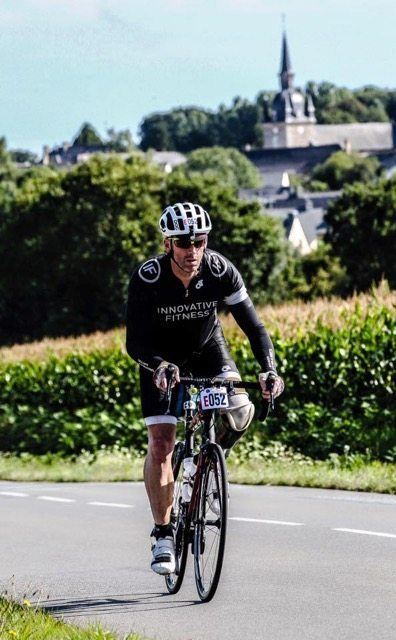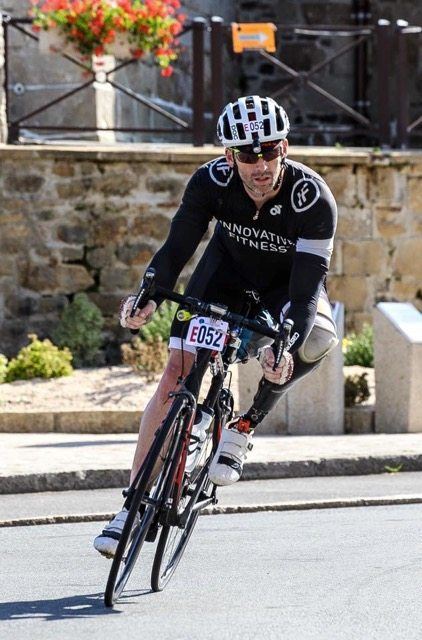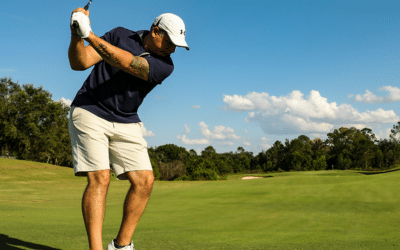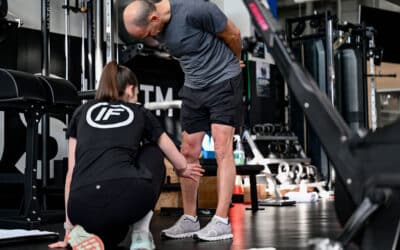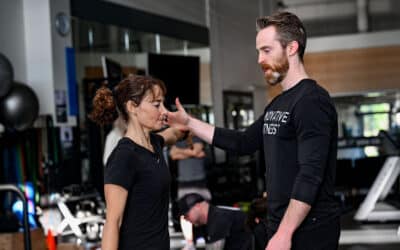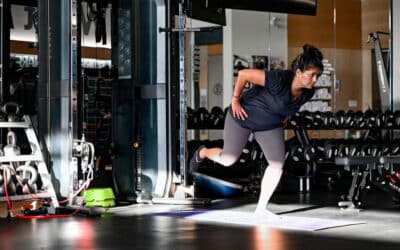Forward
What follows could be mistaken for the ramblings of a madman… It is, however, my best attempt at reporting on the amazing experience of Paris-Brest-Paris, and what the lengthy (1,230km) cycling event in France, meant to me on the 20th anniversary of the accident that took my leg.
Fair Warning: It is an epically long report. I understand if you have more pressing things in your life than reading this. This is primarily to help me remember the event and the associated feelings, so I went into detail.
You’ll enjoy it, or you’ll click away in a few seconds… I’m comfortable either way.
If you do choose to read it, I hope that in my words, each of you can find something to identify with… because challenge, pain, failure, recovery, perseverance, triumph, and joy are all part of the human experience.
Background
If I’m completely honest I suppose I started wanting to tackle races because it would prove to me, and prove to the world, that I was ok. I’d lost a leg in a freak accident in 1995. I was 21 years of age, and with the loss of the leg it seemed my identity as a young, athletic, guy had been lost too. For how long only time would tell; there was no Google then for me to pull up the blogs and personal accounts of others to see what was possible.
So when I first tried a race on one leg – a mountain bike race in fact – the experience was empowering. Everyone around was impressed except me. I crashed too many times, often dramatically, I was worse than I had hoped, but I was out there – sweating, working, dealing with the issues, dealing with the pain, and I felt alive again. I didn’t do “well” but I was out there doing it.
This background is provided as an answer to the most common question I get about Paris-Brest-Paris… Why? Why would you want to ride 1,200+ km? Why would you want to qualify by riding 200, 300, 400 then 600km in less than a week in March on Vancouver Island? What the hell is wrong with you?
That first mountain bike race, over a decade ago, ignited something within me that has never been extinguished. It’s a desire to prove myself. To prove that I am able. That the blue wheelchair placard I’m eligible for doesn’t apply to me.
Luckily I enjoy it too. I like these events – and if they’re challenging, make you nervous, or if they’re downright scary – all the better! One of my greatest friends, Keith Sharman, recently did a trail ultra-marathon that required him to carry a survival knife to fight off bears and such… I was particularly jealous, never having needed to compete with a weapon. But I digress…
As years passed I competed in a great many sports, and all kinds of races. Running, cycling, triathlon, ironman, cross country skiing… they all fulfilled a strong need in me.
Cycling was always my favourite though. The simple joy of riding a bike is, for me, more powerful than the others. The camaraderie, the culture, the history, the equipment, the sounds, the speed, even the pain – I love it all. And there’s the coffee too – a sport linked to strong European style coffee… how great is that? Sign me up!
So, as the years have gone by I have tended to focus more on cycling – the passion runs strongest and deepest with all things “bike” for me.
My “why’s”
In August 2015 all of the factors above would collide dramatically.
The 20th anniversary of my accident happened to coincide with the second day of the world’s oldest bike race – the epic 1,230km event known as Paris-Brest-Paris or PBP. The event, held every 4 years, steeped in history and tradition, sounded like an enormous challenge: qualifying alone required rides of 2, 3, 4 and 6 hundred kms.
It sounded like the ultimate way to mark 20 years since that infamous date in San Francisco.
A note about August 17th… It became a notable date on the calendar for my family with my accident. A few years later my mother would be diagnosed with breast cancer on the same day. Bravely, she beat that round of the disease into submission… But it eventually returned, only to be revealed to her for the second time on…… August 17th again. So it came to be that I give 8/17 a ‘wide berth’ every year. I lay low and try to avoid risky activities on that date – I’m not really superstitious by nature, but there comes a point when it’s better to play it safe. Competing at PBP on the 17th meant I was going to say “to hell with that!” I knew mom would be proud…
So you can see, I had all my “why’s” lined up. If there’s one thing I recommend, especially when it comes to endurance sports, it is to find your “why”. Without it? Well, these things are just fucking hard. I’ve always found the inevitable challenges in these sports easier with a list of “why’s”. I take those reasons and build them into massive internal wars that can only be won by completing the goal. It becomes as close to “life and death” as I can mentally make it. You need something to drive you and I react well to that pressure.
This time I would need all of those “why’s” to make it from setting the goal to the finish line at PBP.
Qualification
The qualification was epic in its own right. “Hell Week” lived up to its name – 4 brevets, also known as a Super Randonneur Series, in one week. 1500km total. March in Canada. Cold. Wet. Hard.
Every time out spinning the pedals there are dozens of stories to be told – that’s one of the things I love about riding – but suffice to say that one by one, riding with various clients, friends, new acquaintances, the qualifying brevets were completed. The final event that week, the 600km “Rush for Gold” was completed in 27hours – a proud accomplishment for me.
With Hell Week under my belt, (not to mention a tender undercarriage down there as well), I supplied my qualifying information to the Audax Club Parisien. ACP is the somewhat mystical body that oversees this niche of crazy cyclists and their Super Bowl/Olympics/Masters rolled into one – PBP. I picture these anciens wearing robes and meeting in secret chambers at French chateâux. It may not be the case, but I have no evidence suggesting they don’t do that.
Paiment Accepté.
They do take visa. A side note for you cyclists out there… Brevets, and even PBP are a wonderful alternative to Gran Fondos. In a Gran Fondo you are shown the way, usually 140-160km, and you gratefully hand over $250-$300 and receive a medal and a burger if you’re lucky.
A brevet of any length (200-1200km) is generally $15. You read that correctly. You’ll receive some food at the checkpoints (known as Controls) but you’ll likely need to access some food yourself along the way as well. You’ll also need to read a route sheet to get from the start to the finish. There’s no medal but I did receive a pin shaped like a banana for each brevet I completed. I covet those banana pins because I know what was involved in earning each one.
More challenge, more adventure, more hearty souls, cool banana shaped pins, and almost all of your money where it belongs – in your ziplock bag / jersey pocket. It’s a no-brainer…
Even PBP chimed in at a mere €115. (That included a souvenir jersey and a reflective night gilet by the way.)
The Big Show – PBP
There is a distinct vibe around PBP. I’ve been to plenty of big events in a variety of sports but PBP is something unto itself.
There are many languages – 55 nations represented – and English is not the primary language. Français s’il vous plait. Perfect… I find French, Italian or Spanish the perfect accompaniment to cycling.
There are the wildest bikes you’ve ever seen. The prospect of riding 1,230km and spending night and day in the saddle causes people to make every manner of modification imaginable.
There was the Philippino “entertainer” that had bungeed an old school ghetto blaster and two big flags to the back of his bike, the British “hipster” riding a fixie with a wool jersey and cap sans helmet, the German “hardmann” with a carbon race bike and literally nothing else (looks like he’s heading out for a club ride and hoping other people brought the spare tubes and a gel) the “throwbacks” with their beautiful classic steel road bikes from the golden era (a dime a dozen over here… sigh…) the “eccentrics” on their recumbents, row-bikes, eliptibikes, and other odd contraptions. And finally, thousands like me – riding standard road bikes with lighting, some added storage for food and gear and perhaps some fenders in case of rain.
In 2015 some 6,000 riders crossed the start line adjacent to the Vélodrome National in St. Quentin-en-Yvelines, a suburb of Paris.
It’s a scene that you have to experience to understand – there’s a nervous energy that presides over all assembled – together we have an awfully long way to travel.
The roll out was a bit hairy despite the lead car neutralizing the race. Of course the nervous energy eventually needed to escape, so the pace was high as soon as the road opened up and the lead car set the riders free. I selected the 80 hour group based on my 600 qualification time. The 80hour folk don’t mess around – it is the fastest group, and before long I was questioning whether I ought to let the wheel in front drift away… 1,230km is significant, and the initial pace felt a tad lively given the challenge ahead. Thinking about it I remained stuck in for the time being.
“Attention! Attention!” Gloved hands flew up into the air. A crash. There is always one… Thankfully it wasn’t me dusting myself off in the first 10km, and also, thankfully, the poor chap looked fine.
The peloton slowly began to split into groups and begin the journey in earnest along some really gorgeous country roads just outside of Paris.
About 100km into the ride I decided to drop a group or two – the one I was in, being driven by several French club riders with jerseys that read U.S. Créteil, was making excellent time, but I feared the price being paid would leave my “wallet” empty at some point down the road.
It was a bad decision. The groups behind were moving at the same speed and I simply gave up minutes vainly hoping for a slightly slower group before joining back on with what seemed like the final 80hr group moving just as fast as the one to begin with. C’est la vie… On the bright side, we were banking lots of time that I hoped would make up for whatever pain I felt later due to this effort.
That ticket got punched hours later at about the 300km mark, when I noticed myself unable to propel the bike more than 13km/h on what looked like a downhill. Merde! At this point I began to berate myself with self-loathing: what a crap rider I was, that cheeseburger I ate a week ago, les deux grande bières last night and the like. The figurative storm clouds formed quickly over my head and projected deep and inconsolable gloom upon me. It was a bonk of mythic proportions.
I had been eating, but apparently not enough considering the early pace and 10 hours of riding. I rolled to a stop, sat down in the grass and proceeded to eat most of the food I had packed for the next two days. 2 gels, a meal replacement drink (740 cals), 4 mini-sandwiches, and half a bottle of water. I allowed myself 10minutes to sit under that tree and digest a bit before remounting my steed to begin crawling, slowly, away from my picnic zone. Things improved gradually. By 400km I felt great again and thus began the strongest period of my PBP.
500-700 is the toughest stretch – from Carhaix to Brest and back to Carhaix. The road goes up and over some geographical feature. I can’t tell you the name as I scaled it from both sides in the middle of the night riding with a group of about ten. The notable characters in our pack were:
– a 70 year old helmetless Italian. Really rode by feel, and seemed to feel like winning the King Of the Mountains jersey. Somewhat erratic, he rode with passion and spoke to other riders in Italian as if they could understand. They couldn’t. He didn’t care. He seemed to want to prove that age is no handicap.
– 3 Slovenian racers. These three were cool as can be. Legs rippling, tanned, shaved and intimidating. Mid 20s… Solid riders, wheels you could trust. Minimal conversation. Just riding. Their plan was to sleep for 6 hours in Brest.
– Random mismatched kit guy – must have been American, loaded bike, looked like he shouldn’t be there, but for some reason was ridiculously strong and untroubled by any acceleration up the climb.
– 41 year old Canadian. Missing a leg. Riding well, his best riding of the event, taking turns, chatting with the racers and the Italian – trying to use French as the common tongue. Happy.
– various headlights trailing, these riders never came to the front to take a turn but remained shamelessly clamped to the back of the group wheel sucking in anonymity.
This I feel is a pretty decent approximation of the typical PBP working group. A group like this might stay together for 30/40/60km until the next Contrôle when all will walk away with nary a word – most in search of food, some sleep, some showers, some to press on. Such is the rhythm of PBP – enjoy groups while they last because that team, working together, is here for a good time, not a long time.
I climbed as well as I ever have. I was very pleased. With 100yards or so to go I was dropped by the strongest Slovenian and Pantani’s father vying for the summit palmarés. Apparently it was a photo finish, though the Italian declared himself the victor. We were all together again for the roaring descent where my 6’2″, 190lb frame lead the way.
The descent into Brest, the halfway mark, was a great moment. Arriving in a total time of 31:30, I was delighted. Lots of time in the bank despite the bonk which seemed long ago now. All was back on track.
At the Contrôle in Brest I helped myself to the standard plate of pasta, coca-cola, dessert, ham sandwich in the pocket, and contemplated sleeping. I was riding well though and wanted to take advantage of it. I wasn’t tired, and felt I should climb back over that bitchy hill and sleep on the other side leaving less than half way to go and the hardest part completed. So that’s what I did.
I rolled out of Brest in the dead of a cold night. Alone. Eventually I caught up to a Swede named Gunnar, we were both 30+ hours into the ride and on our second night without sleep.
Gunnar and I rode 80km together, pretty much alone, in the dark, up and over that big bump. We talked and spun the pedals. We learnt about each other’s families, and why we ride and I realized that life in small town Sweden isn’t too different in a lot of ways to life where I live. People have all the same challenges. We didn’t rush but we rode steadily – it seemed enough as apparently everyone else had chosen to sleep.
Back into Carhaix. Time to sleep till morning. I found myself a patch of floor, wrapped myself in a space blanket, doing my best impression of a stadium hot dog, and was out seconds after setting my alarm for 1 hour.
That alarm sounding was not welcome. Snooze 1. Snooze 2. Snooze 3. 1:30 of sleep it was. I awoke and groggily unwrapped myself… Saturated with sweat from the blanket I headed out into the cold to warm up and start putting more kilometres up on the board.
It was around 700km into PBP that my biggest challenge presented itself. My head began to fall. Not because I was tired from the exertion – I wasn’t. Not because I was sleepy – I wasn’t.
It got to the point that I could barely lift it enough to see the road ahead. I was contorting myself on the bike to try to keep moving – I’d do anything to be upright rather than bent forward. Ride with no hands – yes. Stand up – yes. Stretch forward and curve neck backwards – yes. Any type of proper riding involving aerodynamics, decent velocity, moderate power output? Not really possible. It got to a point that even turning or descending placed too much G-force on my neck. The muscles in the back of my neck were approaching a complete shut down. It was awful and I began to get very worried.
Being daytime though, at least I could strain to see up the road a bit and then just put my head down and work. Or I could find a wheel and put my full trust into it and hope for the best. Frankly these were both a bit scary, but I was too far in to quit, and still hoped I might be able to fix it, save myself and recover somehow.
I went into problem solving mode as I rolled through the fields… Luckily, I had lots of time due to the fast outbound trip, if I could just find a way to survive and keep pedaling I could make it. 500km is a chunky bit of riding under the best circumstances though… And my worries about completion and about the clock began. The stress wouldn’t end for many, many hours. Completing PBP had gone from “what sort of excellent time will I get?” to “Fuck! I really hope I make it!”
Effort #1: in a village I pulled off to the side of the road and sat down with a cheering Frenchman of about 60 years of age. I explained with groans and hand gestures that my neck was killing me and asked if he had “un pomade”. He leapt up, yelled at his wife who seconds later returned with a strong smelling cream. Bingo!
I tried to rub it into my neck for a few seconds but did such a shitty job that he took over and gave me 15minutes of good, strong, trapezius and neck work with the “pomade”. It felt amazing.
Merci bien! I rode off full of hope, 5 minutes later my head was hanging like Eeyore from Winnie the Pooh. Merde!
Effort #2: same idea but at the medical tent at the Contrôle. This time it was a 20year old girl massaging my neck and suggesting I rest on her massage table. So I did… an hour at least. Maybe a real rest would help?
I rolled out, again, full of hope, and 5 minutes later I was hanging low again.
Time ticked by, and I was now wasting a lot of it on med tents and massages that weren’t working. I ran out of ideas after:
Effort #3: Painkillers. No help.
Effort #4: French pharmacy – offered me a cervical collar. Not the right angle but thanks for the idea.
I just kept moving along – slowly. Night fell and I was even more concerned. The situation was bad enough in the day, night, I worried, might be a bridge too far. At about this depressing moment a mountain of a man arrived on his bike. Seeing his size, and hoping I’d therefore be able to stick with him and draft for a while, I put in an effort or two to create that “team” vibe.
After trading off a few times, and doing my best to make an ally, I could no longer fake it and I slowed up to tell him about my neck.
“You’ve got the Shermer’s neck laddy!”
“I’m sorry? Come again?”
In his lilting southern Irish accent, Paddy (his real name), repeated:
“Shermer’s Neck. Happens with the RAAM boyos all the time.”
(RAAM is the Race Across America – another, even longer, bike race.)
“Luckily Paddy’s got a fix for ye and we’ll have ye sorted in no time.”
Hearing the word “fix” I immediately pulled to a skidding halt at the side of the road.
“Let’s do this!” I said.
The “fix” was to tie a bike tube to the back of my helmet, pull it down to the middle of my back and then secure it with 10 or so wraps of duct tape around the torso. The helmet, then stretched to fit onto the head, is pulled back so tightly by the tube that one’s head cannot fall.
After being bound by Paddy, I gingerly stepped onto the pedals in the darkness and looked up the road semi-comfortably for the first time in about 12hours. This solution, though not pretty, and lacking any sort of cool or panache, did have potential.
Unfortunately, it wasn’t long before the helmet hurt like a bitch on my forehead. And the duct tape made any exertion whatsoever impossible (breathing being somewhat central to exercise.)
Paddy and I refined the “fix” by removing the tape, creating shoulder straps with the tube, and twisting the helmet to create tension. It worked and I could breathe freely. I could also take it and my bib shorts off, which Paddy gleefully pointed out would be handy if I needed to take a “number 2”. As I settled in I strongly felt this was as good as it would get so I resolved to learn to like it.
It was, however, still torturous to wear this system. My head was higher, but not high enough. I could no longer look lower down, nor to the left, nor the right. It was utterly fixed and the pressure required to keep it there was excruciating on my head. I was able to ride though – not normally, but enough to keep my hopes of making it to Paris in under 80 hours alive.
Paddy and I rode the whole night together. He was a true godsend to me. He signaled any obstacle with a nice low hand, provided a predictable wheel, spotted all the arrows (too high for me to see) and lead me across France through the dark. All he asked in return was for conversation to stay awake. Paddy hadn’t slept yet and was nearly 800km into the ride and suffering badly from sleep deprivation. Conversation is the best cure so we chatted away. Politics, Northern Ireland, Catholics vs. Protestants, cycling, carpentry, women…. It may be the best trade of services I’ve ever made as the conversation was great too! His accent did get thicker and he began to slur after a while but it didn’t matter – this event isn’t for the faint of heart.
By and by, we came upon the town of La Tanniére where a gent named Paul had set up an amazing rest stop – crepes, coffee, tea, hot chocolate, rice pudding, pound cake… You name it. Paul and his team were there to cater to riders on the understanding that we would all send him a postcard from our hometown. What a gentleman!
When Paul’s daughter placed a coffee in Paddy’s hands he lowered it to his lap and fell asleep instantly, spilling it over his crotch.
At this point I made the executive decision to accept Paul’s offer of “dormir?” He lead Paddy and I two doors down the street and opened it up to his living room where he had laid out 5 or 6 mattresses complete with blankets, duvets and pillows. In the corner a wood stove was burning gently. If anything, this was too good, and I was concerned that Paddy and I might never leave. I set the alarm again – 1 hour.
The last alarm had been rough, but this one was terrible – the worst of my life. I instantly doubled down for another whole hour without consulting Paddy’s snoring corpse.
Another hour passed in the blink of an eye and this time I forced us out of Paul’s living room. We emerged to the same scene on the street – crepes being served to tired riders, coffees being pressed into gloved hands. To me this was a real PBP moment, Paul’s hospitality, fuelled by a love for the event and cycling (and postcards). It, by itself, made the event for me. I’ll never forget it.
We pressed on.
The sun came up and another beautiful day broke over the farms and villages of Brittany. The ribbon of tarmac, was conducive to no-hands riding for quite some time so the Shermer’s Neck was at bay for a good 15-20mins after Paul’s place. Then, as sure as the day is long, it returned.
Eventually the time came for Paddy to open it up, and, I watched as another alliance melted away. He joined onto a group and slipped away. I had no bitterness whatsoever, nothing was discussed, nothing needed to be. He could have dropped me at any moment all night… But he strapped me up, gave me a wheel to follow and did his best to help another rider. That too is a credit to the event and the type of people you find out there. Paddy saved my PBP hopes, kept me in the game, but I still had 200km (or so) to go.
This was crunch time. My math said I needed to minimize rest, minimize time at the contrôles, and keep moving steadily to make it under the 80 hour cut off. It’s easier said than done, when resting is the only relief and the only respite from the pain.
Side note: I could have opted for the 84 hour group or the 90 hour group and either way would have suffered way less stress. But you sleep in the bed you make and I suppose it was bravado that made me choose the 80 hour group many months before I had ever heard of Shermer or his f$&@ing neck.
The final 200km was spent picking one wheel after another and trying to hold it as long as my neck would allow me to. I would get unmercifully dropped in every single village. The quick turns, cars, curbs, people, riders stopped at the roadside were all terrifying with my head hanging low. To keep going, and not forget about the other elements required to ride long distances (fuelling, hydrating, even sunscreen…) was very difficult with such a debilitating problem occupying every moment of conscious thought.
At long last I came upon the final Contrôle in Dreux. With my Garmin long since dead, I consulted the official clock as I had my booklet stamped. It was then I learnt that I had more than 5 hours to go the final 60km.
That moment, when after 700km of good hard riding, and 440km of pain, stress, hard work, exhaustion, and intense focus on staying upright and simply continuing to try… that moment when you realize you are going to make it… That moment is very, very sweet.
I treated myself to the hot food, not the quick food, had a dessert, looked around and savoured my last moments before finishing the ride. Nobody could tell what I had been through, and to be fair, I don’t know what they went through. It’s a long way, and hard to travel so far without issue – but I truly felt like a warrior that had overcome something massive. I felt like David to the Goliath final 500km.
The last 60kms were no better for my neck but my legs had energy, I found a wheel and kept it, and my heart sang. I had built the event up to mean so much – the 20th anniversary of my accident, the conquering of that stupid date, the not insignificant task of qualifying, the expense of travel, then the minor job of riding 1,230km… I didn’t want to contemplate a DNF. Nor did I want to have to tell the story about finishing outside of my time cut-off. I wanted one result and one result only. I had suffered great stress over it during the 500km grind portion of the ride (there’s plenty of time to think – let me assure you…) I don’t know what I would do differently next time but there shouldn’t be so much stress – or maybe there should? Maybe that stress and desire is what got me through? I’m still processing. It was pure hell though… Right up until it ended.
The finish line at PBP could use some work. No announcer, no arch, nothing except a timing strip and the reassuring BEEEEP as your chip crosses it for the final time.
Looking back now, and reading this, it is all a blur. Certain scenes like Paul’s living room, or Paddy strapping my head up for the first time are crystal clear – where and when everything happened? Not so clear.
In summary it was a struggle. I’d trade it in a moment for a smooth ride that I could enjoy. However, perhaps this was meant to be – after all I chose this event to mark the anniversary of something that is a daily struggle. The parallel is that despite the struggle in the race, and despite the struggles in life, I feel I have come out on top. Maybe a little ragged, perhaps worse for wear at times, but here I am. I feel victorious.
I’m going to sign off with a quote I have always loved and that I think is timely.
“It is not the critic who counts; not the man who points out how the strong man stumbles, or where the doer of deeds could have done them better. The credit belongs to the man who is actually in the arena, whose face is marred by dust and sweat and blood; who strives valiantly; who errs, who comes short again and again, because there is no effort without error and shortcoming; but who does actually strive to do the deeds; who knows great enthusiasms, the great devotions; who spends himself in a worthy cause; who at the best knows in the end the triumph of high achievement, and who at the worst, if he fails, at least fails while daring greatly, so that his place shall never be with those cold and timid souls who neither know victory nor defeat.”
—Theodore Roosevelt.
Some stats from my PBP:
- 1,230km covered + approx 6 bonus kms from the odd wrong turn here or there.
- 32 gels consumed between controls
- one big bag of cola bottle candies consumed
- two meal replacement drinks (740 cals each)
- meals of pasta at nearly every control
- coke at nearly every control
- an entire pack of effervescent caffeine tablets consumed
- an entire pack of painkillers consumed
- dozens of Endurolytes consumed
- two crepe stops of 2 crepes each time
- one massage from a French guy
- one massage from a French girl
- approx 5-6 hours of sleep
- 77:49 total time.
- under the 80 hour cut-off by 2 hours and 11mins.
- first 600km in 31:30.
- last 600km in 46:19 (that’s the Shermer’s Neck effect!)
